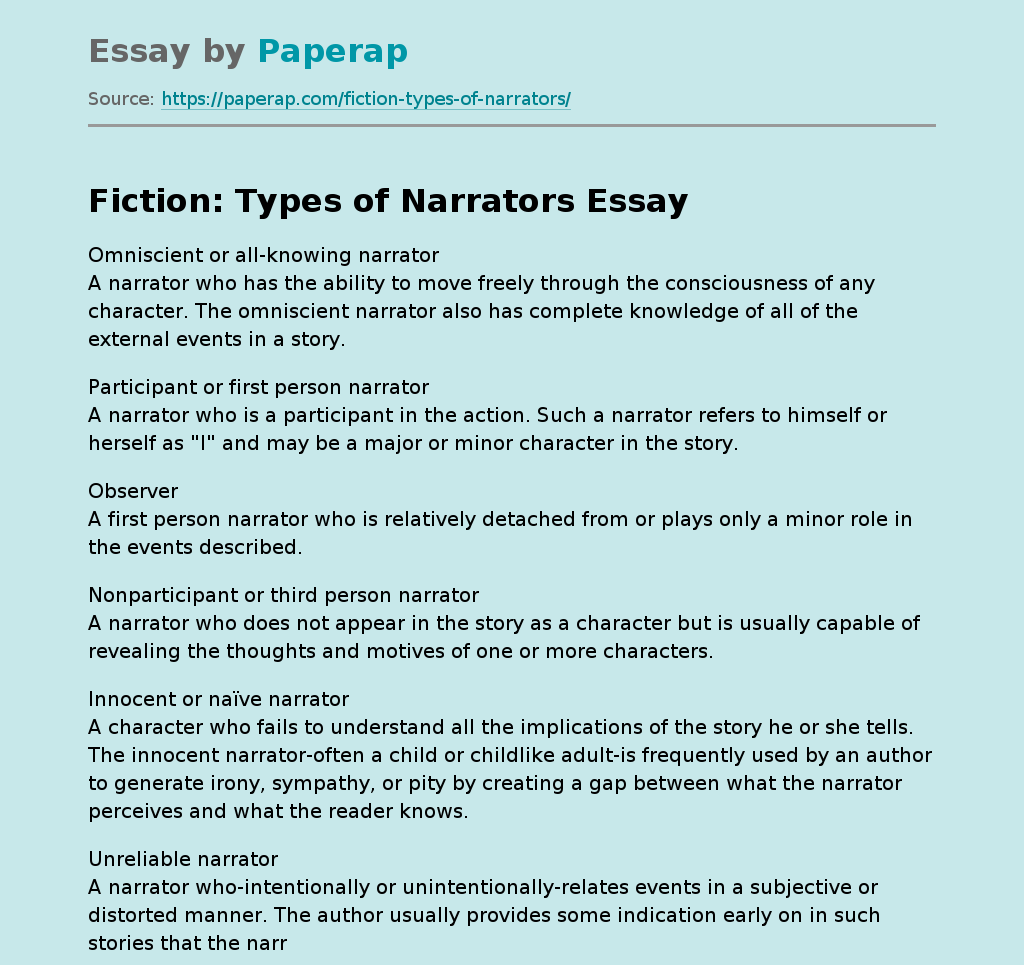Fiction: Types of Narrators
Essay,
Pages 1 (210 words)
Views
17
Omniscient or all-knowing narrator
A narrator who has the ability to move freely through the consciousness of any character. The omniscient narrator also has complete knowledge of all of the external events in a story.
Participant or first person narrator
A narrator who is a participant in the action. Such a narrator refers to himself or herself as “I” and may be a major or minor character in the story.
Observer
A first person narrator who is relatively detached from or plays only a minor role in the events described.
Nonparticipant or third person narrator
A narrator who does not appear in the story as a character but is usually capable of revealing the thoughts and motives of one or more characters.
Innocent or naïve narrator
A character who fails to understand all the implications of the story he or she tells. The innocent narrator-often a child or childlike adult-is frequently used by an author to generate irony, sympathy, or pity by creating a gap between what the narrator perceives and what the reader knows.
Unreliable narrator
A narrator who-intentionally or unintentionally-relates events in a subjective or distorted manner. The author usually provides some indication early on in such stories that the narrator is not to be completely trusted.
Fiction: Types of Narrators. (2019, Feb 20). Retrieved from https://paperap.com/fiction-types-of-narrators/
